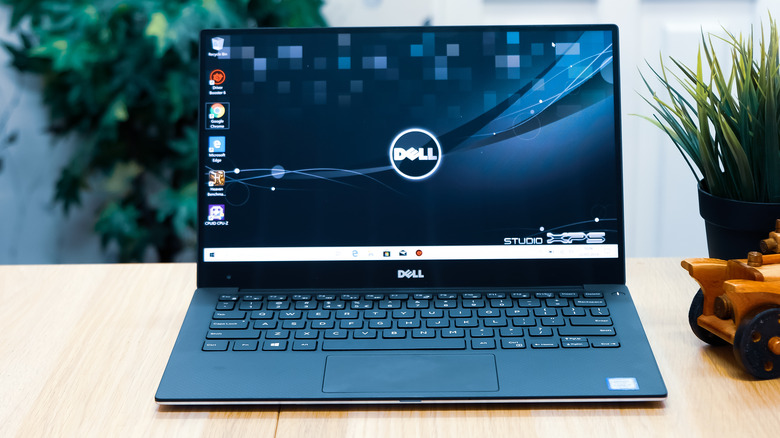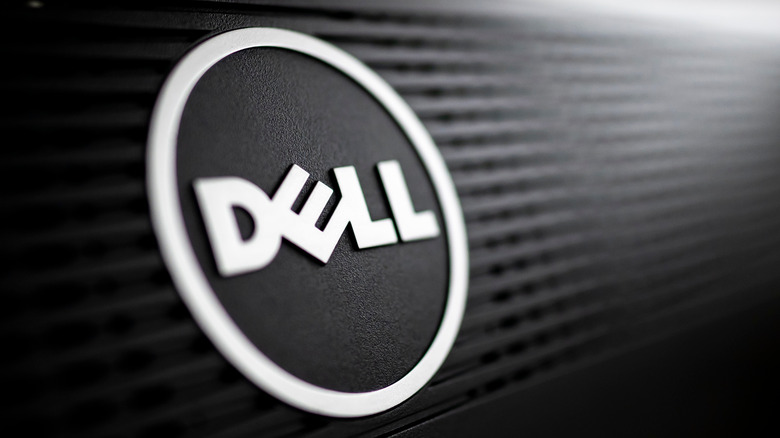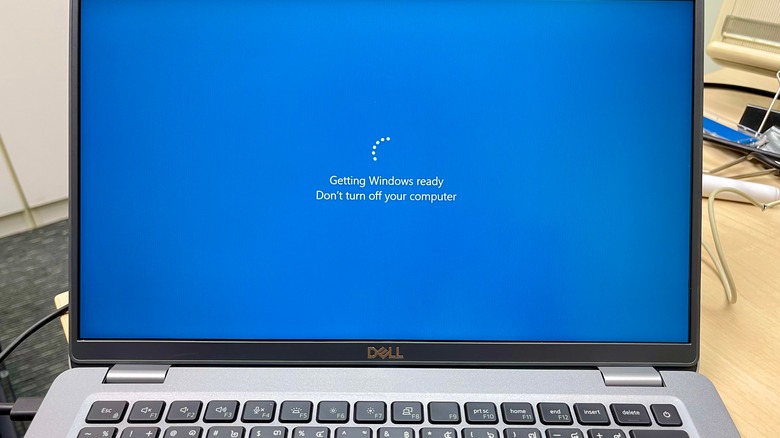A Dell Disaster: 2006's Massive Laptop Battery Recall
Being an industry leader in any field is both a privileged and challenging position. On the one hand, you're a trusted titan, like Ford in the world of motor vehicles or, indeed, Dell in computing. On the other, however, any issues that arise tend to be proportionately magnified. In 2006, Dell proved a rather embarrassing and potentially dangerous example of just that.
As Statista reported in April 2023, only HP and Lenovo (creator of the fascinating dual screen Yoga Book 9i) top Dell in terms of worldwide laptop sales. The globally-recognized names would seem to suggest that, like those of its fellow heavyweights, a Dell machine is one to trust. There are always issues and anomalies where technology is concerned, though, and a 2006 laptop battery recall that the company was forced to carry out became one of the biggest the tech sector had ever seen. Over four million laptops were affected.
Here's what went so wrong for Dell's Inspiron, Latitude, and Precision models that year, and why such wide-reaching methods were necessary.
What happened to Dell's laptops in 2006?
Dell was forced to issue a recall in response to an issue with the lithium-ion batteries in laptops sold between April 2004 and July 2006. These batteries were created by Sony, Dell stated, and The New York Times reported in August 2006 that the company "affirmed today that its batteries were responsible, [and] said it was 'financially supporting' Dell in the recall."
Just two months prior, a truck had been destroyed after a Dell device in the back burst into flames and ultimately ignited the vehicle's gas. Owner Thomas Forqueran told the Times, "Somebody is going to wind up getting killed."
To address the issue, Dell created a website where users could order new batteries for potentially-affected devices, and nearly 80,000 customers signed up on the very first day with . NBC reported that Dell spokesperson Ira Williams said new batteries would be made available but didn't provide a time table as to how long that it could take. All in all, the replacement scheme was estimated to cost the company somewhere in the region of $300 million, according to NBC.
The potential dangers of lithium-ion batteries
From laptops to tablets and so many more besides, many of the devices we rely on run on rechargeable lithium-ion batteries. Light, powerful, and versatile, they're incredibly convenient, but they can also be rather dangerous when misproduced. The Occupational Safety and Health Administration notes, however, that "Lithium batteries are generally safe and unlikely to fail, but only so long as there are no defects and the batteries are not damaged."
As Dell found in 2006, there's potential for such batteries, when flawed in design as the Sony batteries were rumored to be, to grow far too hot and even catch fire, through the process of thermal runaway. They can emit gases such as carbon dioxide and sulphur dioxide, which can quickly lead to such dangers as fires.
The vital takeaway from Dell's situation in 2006 is that such batteries overall aren't the danger some may fear them to be. Endpoint Technologies Associates' Roger Kay said at the time, according to NBC News, that the disastrous situation was "a manufacturing problem and not an indictment of lithium-ion technology," and that such technology was, more broadly, "perfectly safe."


